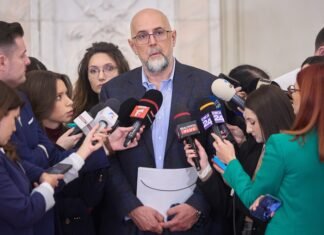The Ukrainian government’s new legislative proposal aims to revise the list of minority languages that receive protection under the European Charter for Regional or Minority Languages. This update will result in the removal of the Moldovan and Russian languages from the list, while several others will continue to enjoy protected status. Specifically, languages such as Romanian, Belarusian, Bulgarian, Gagauz, Crimean Tatar, Modern Greek, German, Polish, Slovak, Hungarian, and Hebrew will remain recognized and safeguarded.
This legislative change reflects a significant shift in how Ukraine views linguistic diversity within its borders. The proposal underscores a commitment to preserving cultures and languages that, while minority, contribute to the rich tapestry of Ukrainian identity. By retaining support for languages such as Romanian and Hungarian, the government acknowledges the historical and cultural ties these communities have with Ukraine.
Additionally, recent statistics indicate a growing sense of Ukrainian identity among the populace. In 2024, approximately 78% of respondents identified as ethnic Ukrainians, a statistic that reflects a broader trend toward national consolidation and the affirmation of a distinct Ukrainian cultural identity. This evolution is not merely demographic; it also signifies a robust movement toward strengthening national unity and cohesion within Ukraine, especially in the context of ongoing geopolitical tensions in the region.
The decision to exclude languages like Moldovan and Russian may also be seen as a response to current political dynamics, emphasizing the importance of fostering a national identity that aligns closely with Ukrainian sovereignty and independence. The protection of minority languages can be a double-edged sword; while it demonstrates a commitment to cultural diversity, it can also raise questions about national unity and prioritization of resources.
Moreover, the legislative update is likely to stir various reactions among the affected communities. For some, the continued recognition of their languages is a pivotal aspect of their cultural heritage. For others, the removal of Moldovan and Russian may signal a loss of status and support, evoking feelings of exclusion. It is crucial that the Ukrainian government manages these changes sensitively, ensuring ongoing dialogue with minority groups to address their concerns and expectations.
In conclusion, the updated legislation represents a significant step in defining the linguistic landscape of Ukraine. By protecting a select group of languages, the government is not only acknowledging the historical significance of these cultures but also asserting a vision for a cohesive national identity. As Ukraine navigates its future amidst internal and external challenges, the way it approaches minority languages will likely play a vital role in shaping social dynamics and fostering a sense of belonging among all its citizens.
For more information and ongoing updates, check out a personalized news feed, enhanced with artificial intelligence, which offers tailored notifications for a more interactive experience. You can download the app from the App Store or Google Play to stay informed about developments like these.






